Buy Cymgal : Valganciclovir 450 mg Tablet 10’S Online
$42.51
Brand Name : Cymgal
Composition : Valganciclovir
Manufactured by : Biocon Ltd
Strength : 450mg
Form : Tablet
Packing : Pack of 10 Tablets
Prescription Required *
Cymgal is a medication that is used to treat cytomegalovirus (CMV) infection in patients who have undergone an organ transplant. The active ingredient in Cymgal is Valganciclovir, which belongs to the class of drugs known as antivirals. It works by preventing the replication of the CMV virus in the body.
Uses:
Cymgal is used to treat CMV infection in patients who have undergone an organ transplant, such as a kidney or liver transplant. It is also used to prevent the recurrence of CMV infection in patients who have previously had the infection.
HOW TO USE:
Cymgal should be taken as directed by the doctor. The dosage and duration of treatment will depend on the patient’s medical condition and response to treatment. The tablets should be taken with food to ensure proper absorption. Patients should not crush, chew, or break the tablets before swallowing them.
Storage Conditions:
Cymgal tablets should be stored at room temperature, away from direct sunlight, and out of the reach of children. The tablets should be kept in their original packaging until they are ready to be used.
Mechanism of action:
Valganciclovir is converted to ganciclovir in the body, which is the active form of the drug. Ganciclovir works by inhibiting the replication of the CMV virus in the body. It does this by interfering with the viral DNA synthesis and blocking the action of the viral DNA polymerase enzyme.
Precautions:
Before using Cymgal, patients should inform their doctor if they have any pre-existing medical conditions, including kidney disease, blood disorders, or a history of bone marrow or organ transplantation. Patients should also inform their doctor if they are pregnant or breastfeeding.
Contraindications:
Cymgal should not be used in patients who are allergic to Valganciclovir or ganciclovir. It should also not be used in patients with severely reduced kidney function.
Drug Interactions:
Cymgal may interact with other medications, including some antibiotics and antifungal drugs. Patients should inform their doctor of all medications they are taking, including over-the-counter medicines, vitamins, and herbal supplements.
Overdose:
If an overdose of Cymgal is suspected, patients should seek immediate medical attention. Symptoms of an overdose may include nausea, vomiting, diarrhea, and kidney damage.
Side effects:
Cymgal may cause some side effects, including:
1. Nausea and vomiting
2. Diarrhea
3. Headache
4. Fatigue
5. Low blood cell counts
6. Kidney damage
Patients should inform their doctor if they experience any side effects while taking this medication.
Be the first to review “Buy Cymgal : Valganciclovir 450 mg Tablet 10’S Online” Cancel reply
Related products
Antiviral Drugs
Antiviral Drugs
Buy Valcyte : Valganciclovir 450 mg Tablet 60’S Online For Sale
Antiviral Drugs
Antiviral Drugs


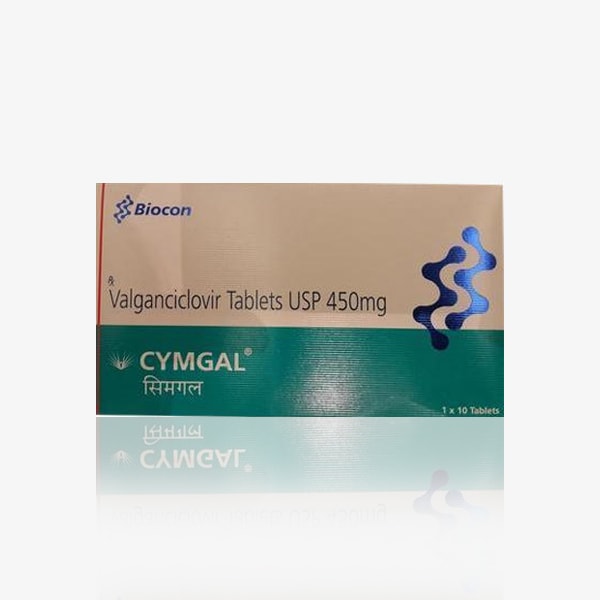

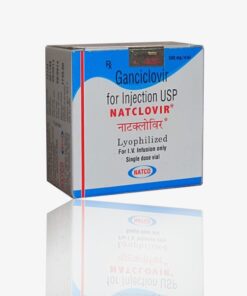
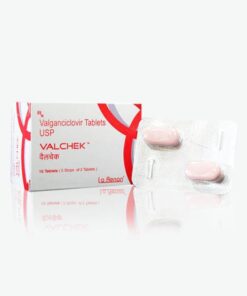
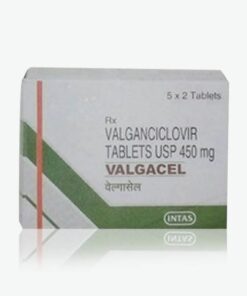
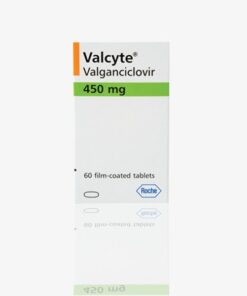
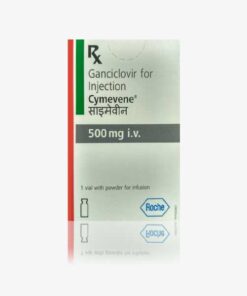
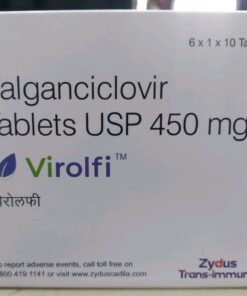
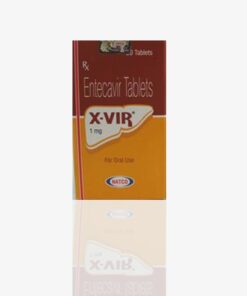
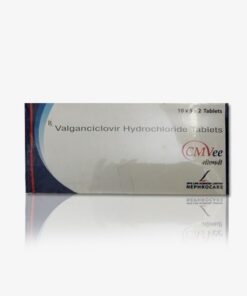
Reviews
There are no reviews yet.